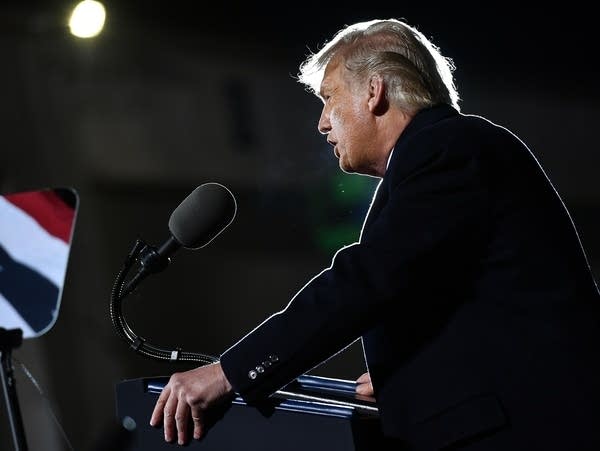Where Trump went and who he met in Minnesota ahead of testing positive for COVID-19

President Donald Trump speaks during a campaign rally at Duluth International Airport in Duluth, Minn., on Wednesday.
Mandel Ngan | AFP via Getty Images
Go Deeper.
Create an account or log in to save stories.
Like this?
Thanks for liking this story! We have added it to a list of your favorite stories.


